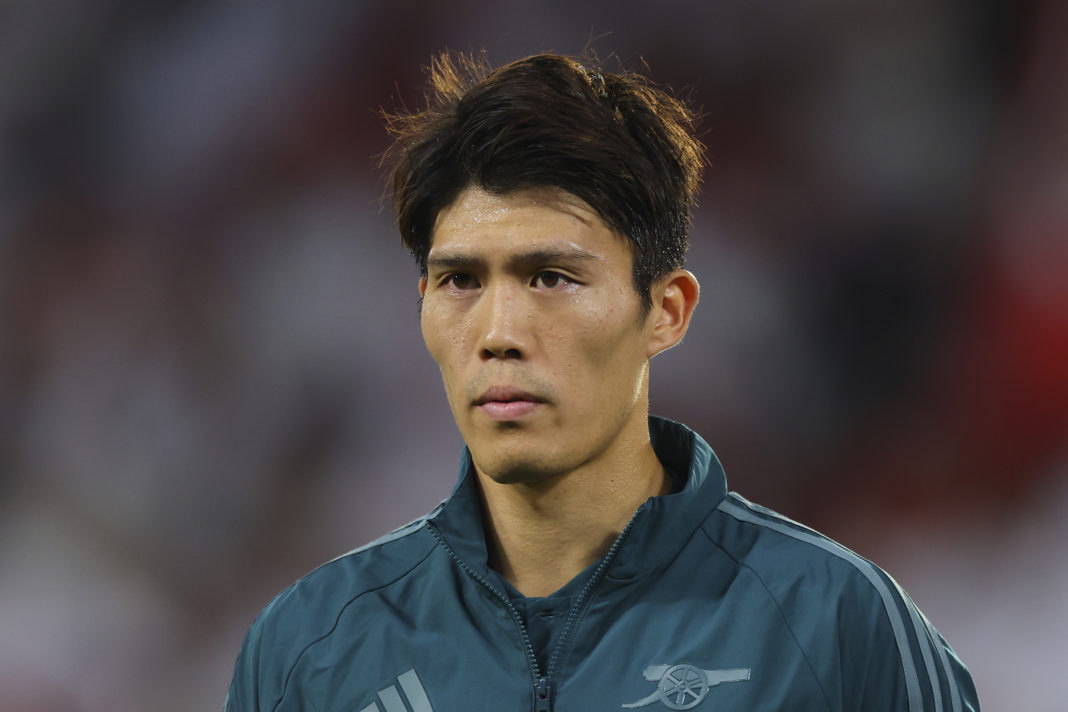Arsenal fans are once again holding their breath as Takehiro Tomiyasu deals with another calf injury.
The Japanese defender’s latest problem adds to a growing list of fitness concerns, casting a shadow over his availability for upcoming games.
Here, we’ll delve into Tomiyasu’s injury history, why calf injuries can be particularly troublesome, and what this might mean for the rest of his season.
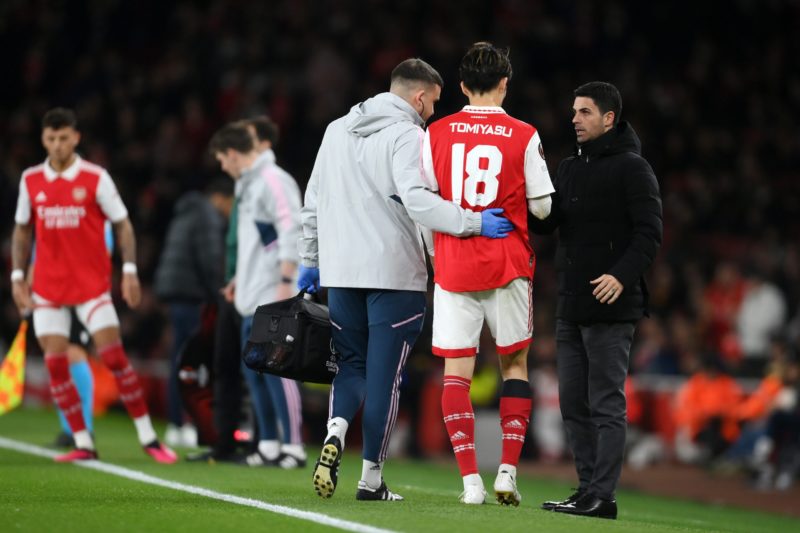
Tomiyasu’s latest setback
Mikel Arteta’s recent comments confirmed that Tomiyasu’s calf issue is more than just a “niggle.” The defender, recovering from a knock sustained at the Asian Cup with Japan, is not yet ready to return to the Arsenal squad with Arteta confirming he needs “still a little bit more time”.
This latest injury marks Tomiyasu’s third calf problem since joining the Gunners in 2021 from Bologna for just under £17m.
The troublesome nature of calf injuries
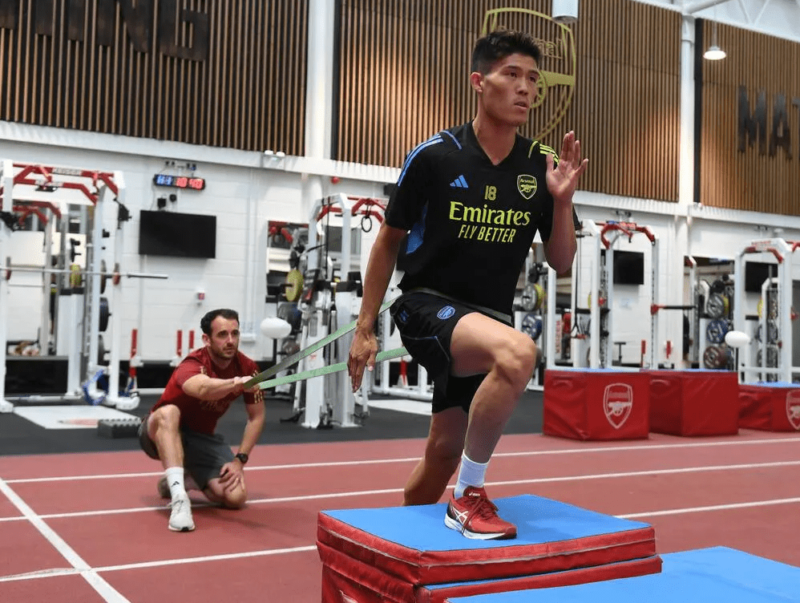
Calf injuries can be notoriously difficult to shake off. The calf muscle complex is essential for running, jumping, and sudden changes of direction – key aspects of a defender’s game. Rushing back prematurely can lead to reinjury, creating a frustrating cycle for players like Tomiyasu who perhaps would have been better missing the Asian Cup to rest.
A history of setbacks – Tomiyasu’s injury record
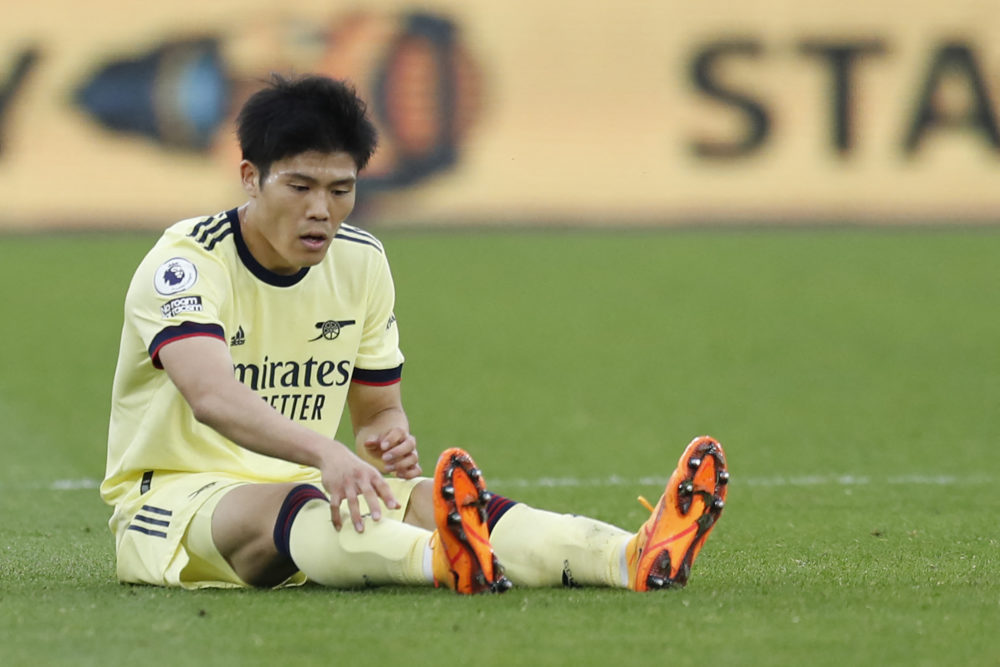
A look at Tomiyasu’s injury history reveals a concerning pattern. Since his 2019/20 season with Bologna, he’s battled various calf, knee, and hamstring problems. These recurring issues highlight the challenges he faces in maintaining full fitness, especially during the congested fixture list of a top-flight team like Arsenal.
His total of 210 days missed across just the last two seasons underscores the severity of the situation.
What does this mean for Arsenal?
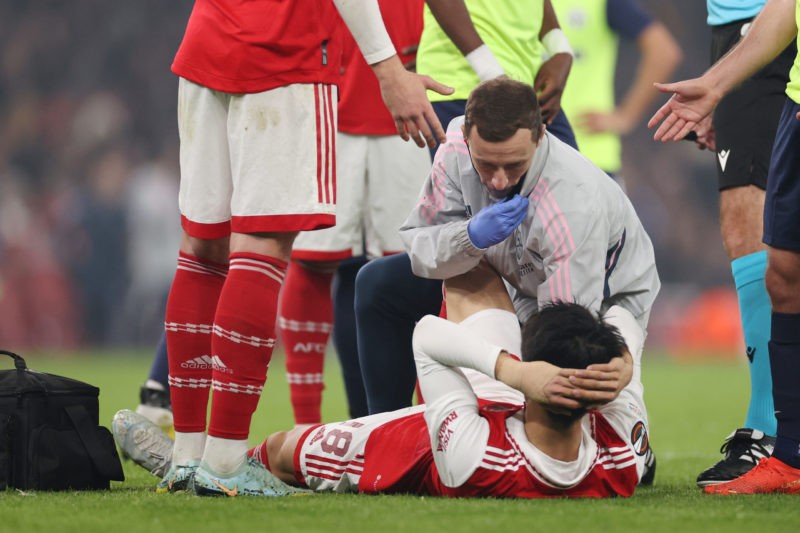
Tomiyasu’s absence puts additional pressure on Arsenal‘s backline. While Ben White has excelled at right-back, Tomiyasu’s defensive solidity and versatility are valuable assets, particularly as the Gunners push for silverware on two fronts.
The club will be cautious with his return, prioritising long-term recovery over rushing him back prematurely. He is not expected to miss the remainder of the season, though with Tomiyasu’s record of setbacks you wouldn’t bet against further delays to his return.
Hope for the future
Despite the recurring setbacks, Arsenal fans still have reasons for optimism. With careful management and a structured rehabilitation program, he can hopefully overcome these persistent injuries and get back to his best. His contributions will be crucial as Arsenal aim for success this season and beyond.
Understanding Tomiyasu’s injury history
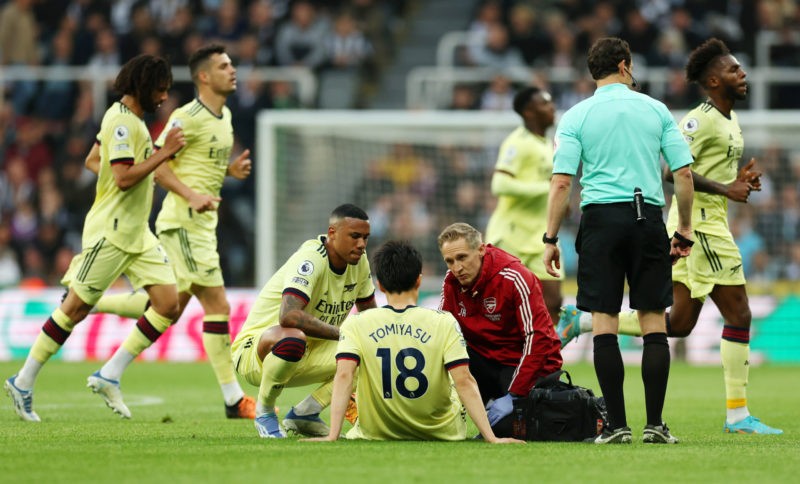
Let’s dissect the timeline of Tomiyasu’s injuries, paying attention to recurring themes and possible factors:
- Calf injuries: The recurring culprit: Tomiyasu’s most frequent issue seems to be calf injuries – three since joining Arsenal alone. Calf strains can range in severity, but there’s often a risk of reinjury if rehabilitation is not thorough. This could suggest an underlying vulnerability in his calf muscles or a need to adjust his training and recovery routines.
- Knee problems: A potential connection: Tomiyasu has also experienced knee issues on several occasions. While these might seem unrelated, there could be a connection. Calf injuries can alter running mechanics, putting additional stress on the knees. Alternatively, underlying biomechanical issues could be contributing to both calf and knee problems.
- Hamstring strains: Though less frequent, hamstring injuries in his record are worth noting. Hamstrings and calf muscles work together, and an imbalance or compensation pattern due to past injuries could increase the risk of hamstring problems.
The impact of a congested calendar
Tomiyasu’s arrival in the Premier League coincided with a more demanding fixture list compared to his time in Serie A. The increased frequency of matches, along with the intensity of the English game, puts greater strain on players’ bodies. This could be a factor in Tomiyasu’s recurring injuries, especially if he’s predisposed to muscle strains.
The search for solutions
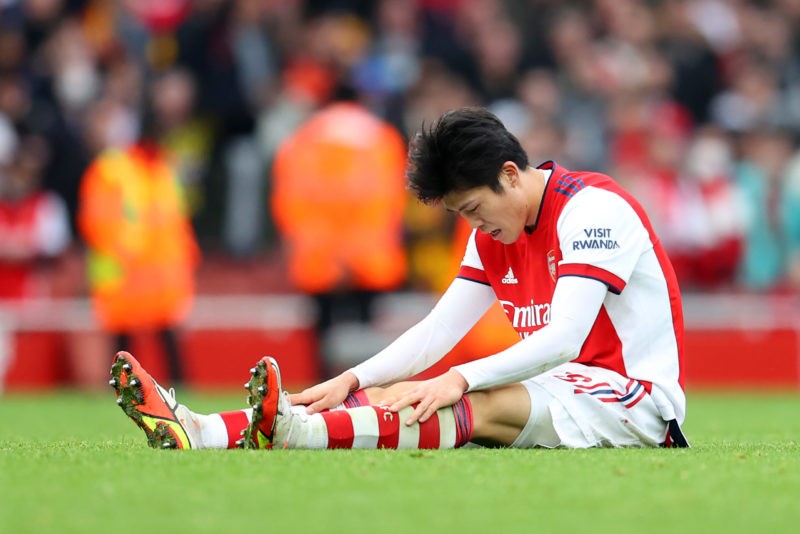
Arsenal‘s medical team will undoubtedly be working closely with Tomiyasu to identify the root causes of his injuries. This likely involves a comprehensive assessment of:
- Biomechanics: Analysing his running gait and movement patterns to pinpoint potential imbalances.
- Strength and Conditioning: Evaluating muscle strength and flexibility to identify areas for improvement.
- Load Management: Carefully tailoring his training and recovery to prevent overexertion and reduce injury risk.
The importance of patience
While frustrating for both the player and fans, a patient and methodical approach is crucial. Addressing the underlying causes of Tomiyasu’s injuries, rather than simply treating symptoms, will be key to a sustainable return to full fitness. This might involve a longer rehabilitation period and a gradual reintegration into the squad to minimise the risk of recurrence.

